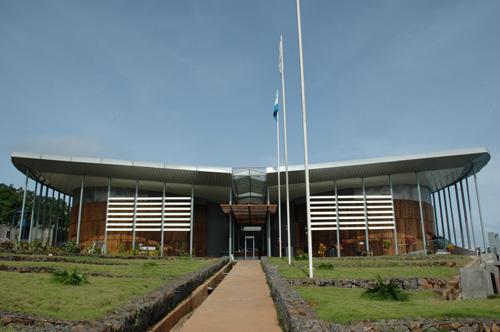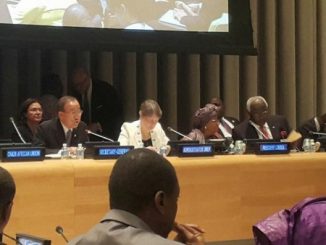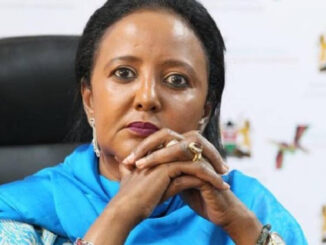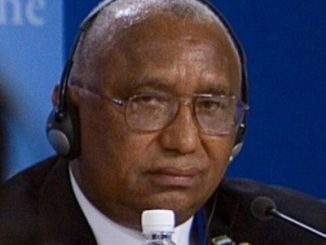
Special Court for Sierra Leone
Press and Public Affairs Office
PRESS RELEASE
Freetown, Sierra Leone, 10 March 2004
Special Court for Sierra Leone Officially Opens New Courthouse
A new era of justice officially began in Freetown today as members of the national and international community gathered for the official opening of the new Courthouse of the Special Court for Sierra Leone.
The ceremony was held in the nearly-completed courthouse that will provide the venue for trials involving those alleged to bear the greatest responsibility for atrocities committed during Sierra Leone’s decade long civil war.
After only 18 months, a previously barren 12 acre piece of land has been transformed in to a world-class international court complex with a Detention Facility and offices to accommodate up to 320 staff.
Just five months ago on October 3, 2003 workers began construction of the US$3.4 million Courthouse.
Registrar Robin Vincent said immense progress had been made during the building period as workers laboured day and night to fast-track the building construction time.
“The new courthouse is a monument to justice which will stand long after the work of the Special Court is completed,” Mr. Vincent said.
“The return of the rule of law, the courthouse itself and the experience gained by Sierra Leoneans working at the Special Court will all combine to leave a strong legacy long after the trials are complete.”
Officials from the Court, its sister tribunals for Rwanda and the former Yugoslavia and the International Criminal Court, the Court’s Management Committee, traditional leaders and government officials from Sierra Leone and abroad, representatives from the United Nations, judges, members of civil society and school children observed today’s opening ceremony.
Mr. Vincent said that for much of the past decade, Sierra Leone had been best known for its brutal war and for the breakdown of its civil society.
“But today, Sierra Leone is being recognised for something else which is for its commitment to the restoration of the rule of law in their country, and for their leadership in promoting international justice ”




Leave a Reply